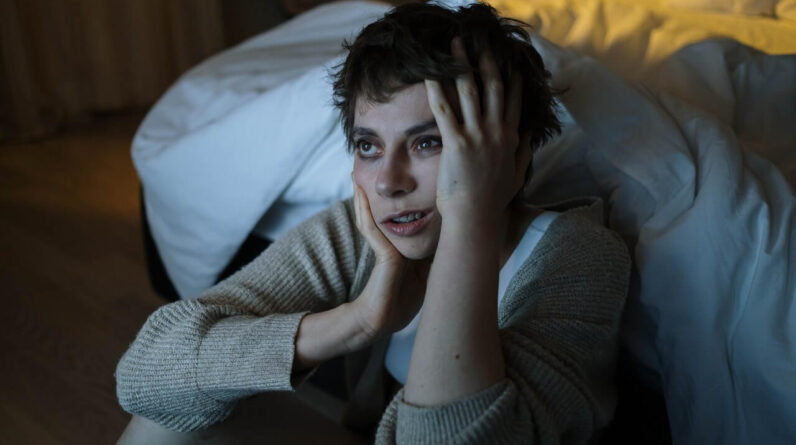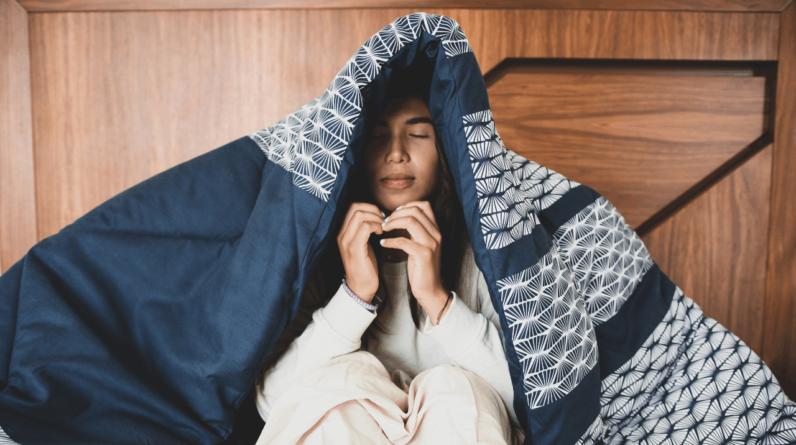
Some people declare sleep as one of the best things in life.
But usually, these same people don’t particularly struggle with falling asleep or staying sleep. Unfortunately, about 50-70 million Americans have a sleep disorder.
Sleep disorders can come in all shapes and sizes. From snoring to insomnia, there are various reasons that sleep might pose a frustrating dilemma. You desperately want a good night’s sleep, yet it doesn’t seem to be happening.
- So, what’s the deal?
- Do you have a sleep disorder?
Below, we dive into the top 5 major sleep disorders, as well as what causes a lack of sleep and more!
What Causes Lack of Sleep?
One of the most common causes of a lack of sleep is stress. And unfortunately, this can turn into a vicious cycle.
- You get stressed so you can’t sleep.
- But you can’t sleep because you’re stressed.
- Cortisol, the stress hormone, causes us to feel alert.
Thus, stress and sleep really don’t mix!
However, stress, although a major player here, isn’t the only reason for a lack of sleep.
Travel or work schedules can throw off your circadian rhythm. Additionally, poor sleep hygiene or sleep habits (such as going to bed too late or using screens late at night) can leave you lacking in the sleep department.
Related Article: Here Are 5 Helpful Ways You Can Recover From Another Sleepless Night
What Are the 5 Major Sleep Disorders?
There are around 80 sleep disorders. Yet, the top 5 include:
1. Insomnia
Insomnia is defined by difficulty getting to sleep or staying asleep.
Frequently, this sleep disorder results due to stress, environmental factors (such as loud noises or lights), jet lag, or genetics (there is some evidence indicating insomnia runs in families).
Other reasons insomnia may occur include:
- thyroid issues
- depression
- anxiety
- caffeine use
- drug use
- alcohol use
- pregnancy
- Alzheimer’s disease
- ADHD
- menopause
- PMS
Usually, treatment involves addressing the underlying cause, such as practicing regular relaxation techniques or getting to the bottom of any hormonal issues or substance abuse problems.
2. Sleep Apnea
Sleep apnea is when a person literally stops breathing in the middle of the night.
While they pick right back up a few seconds later, it can be ultra-disruptive when it comes to getting a good night’s sleep.
This type of sleep disorder happens when the throat muscles become too relaxed, the brain isn’t sending the proper signals during sleep for controlling breathing, or both.
Individuals who are more at risk include:
- having a higher than average neck circumference
- having excess weight
- smoking
- being male
- having nasal congestion
Treatment may involve a combined approach, such as using a sleep apnea machine while also focusing on lifestyle changes to lose weight.
3. Narcolepsy
Narcolepsy involves frequent daytime drowsiness.
This often leads to “attacks of sleep,” which often means individuals with this type of sleep disorder have difficulty staying awake for long durations.
Interestingly, the cause of this particular sleep disorder isn’t entirely known. Experts note that individuals diagnosed with narcolepsy frequently have low hypocretin, which is an critical neurochemical involved in the sleep-wake cycle.
It’s further thought that genetics also play a role in the development of this disorder.
Treatment usually involves medication, along with lifestyle changes. These may include:
- taking naps
- sticking to a set sleep schedule
- obtaining regular exercise
- abstaining from drug or alcohol use
4. Restless Legs Syndrome
Restless leg syndrome (RLS) happens when individuals have uncontrollable urges to shake or move their legs.
This urge comes on due to other uncomfortable sensations. Unfortunately, it happens frequently when lying down and in the evening, making it major sleep disruptor.
Medications may also be prescribed for this sleep disorder. However, lifestyle modifications are usually encouraged, such as:
- regular exercise
- having a warm bath
- maintaining good sleep hygiene
- abstaining from caffeine use
- using warm and cold packs on the legs
- using foot wraps specifically designed for those with restless leg syndrome
5. REM Sleep Behavior Disorder
REM (Rapid Eye Movement) sleep behavior disorder is when a person “re-enacts” dream situations in their sleep, such as yelling out or with violent leg or arm movements.
Usually, during REM sleep, you don’t move. And unfortunately, this type of disorder is linked to various neurological disorders such as Parkinson’s disease.
Luckily, attending a sleep clinic can help you figure out the right course of action. Usually, medication is prescribed but not always.
What is Parasomnia?
“Parasomnia” refers to disruptive sleep behaviors, such as:
- sleepwalking
- talking in your sleep
- eating in your sleep
- sleep paralysis
Some of these behaviors may be linked to one of the above common sleep disorders. Furthermore, these “parasomnias” may run in families, becoming triggered by sleep disorders.
What is the Best Sleep Therapy?
The best sleep therapy may depend on what your initial complaint is in the first place.
This is why attending a sleep clinic is of the utmost importance. A specialist will examine your sleep behavior, determine a diagnosis, and help draft a treatment plan specific to you. This way, you can get the help you need.
At the same time, some of the best sleep therapy involves lifestyle choices. For instance, practicing proper sleep hygiene, including going to bed and waking up at the same times and sleeping in a quiet, cool, and dark space, can help in leaps and bounds.
Furthermore, what you do during your day also matters. This means participating in regular exercise and eating a healthy diet, as well as finding ways to reduce any stress in your life.
Related Article: 10 Ways to Help You Fall Back Asleep After Waking Up in the Night
When Should You See a Doctor About Sleep Disorders?
If you’re struggling with sleep for more than four weeks, it’s frequently recommended to book an appointment with your doctor.
Sleep disorders are serious conditions that can impact your daily life, your health, and your overall happiness. Thus, figuring out your sleep is one of things you can do elevate your life and feel like your best self.
Read Next: How To Do a Sleep Meditation to Fall Asleep Easier, Faster & Better
Editor’s note: This article was originally published Jul 15, 2022 and has been updated to improve reader experience.
Photo by cottonbro studio







